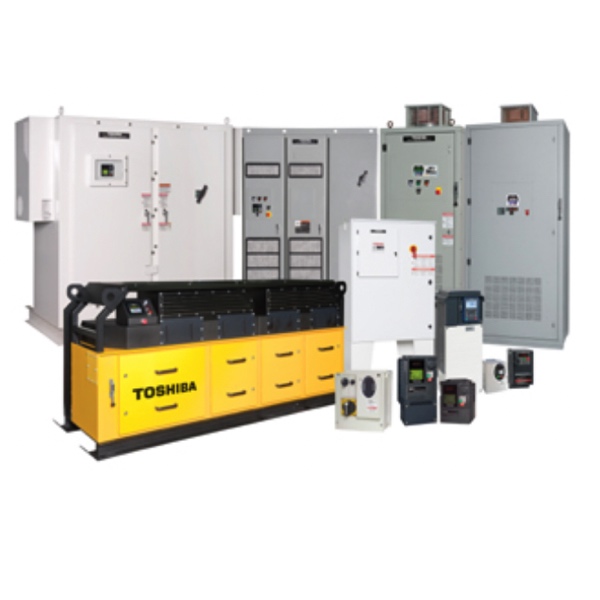Toshiba VFDs

Toshiba Variable Frequency Drives (VFDs) are respected for their reliability and advanced features. They are well-suited to systems where precise control of motor speed and torque (constant torque and variable torque) is required—performance that boosts energy efficiency. These servos don't work with capacitors in the same way that fans or pumps do; instead, they use electronic power conditioning (EPC) to link the drive module to the servo.
Toshiba's VFDs are recognized for their modern control options. They use advanced algorithms that give smooth and precise motor control, with a trio of operating modes allowing for very flexible regulation of motor speed and torque—voltage-frequency control, V/Hz control, and full vector control (VFC). Controlling and programming the Toshiba VFDs is relatively simple. User-friendly software allows easy setup and configuration of the versatile VFDs to suit a wide array of applications across many industries.
FAQs
Does Toshiba's adjustable speed drive standard features include manual torque boost?
Yes, Toshiba's adjustable speed drives often include standard features such as manual torque boost, which allows for enhanced control of motor torque during low-speed operation.
Does Toshiba's low voltage adjustable speed drive's compact design have a reduced component count leading to a small footprint?
Yes, Toshiba's low voltage adjustable speed drives feature a compact design with a reduced component count, resulting in a smaller footprint and increased reliability.

